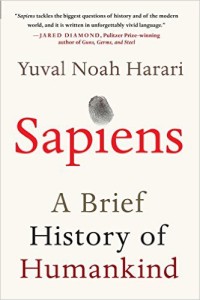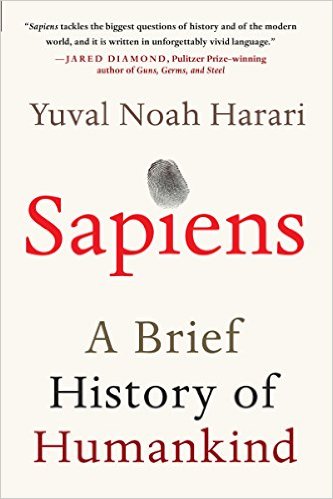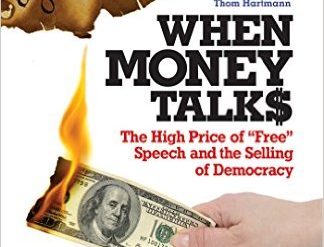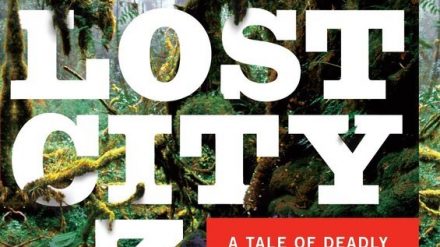
If you think of history as an account of kings, wars, and revolutions, you won’t find it in Yuval Noah Harari’s Sapiens: A Brief History of Humankind. Nor will you find more than a smattering of familiar names of the “Great Men” who have supposedly bent the arc of history. This is history as you’ve never seen it before, history as it might have been written by an extraordinarily long-lived extraterrestrial observer. Here is Big History, the story of life on earth from the Big Bang to the present — and beyond.
Estimated reading time: 4 minutes
Beginning with the book’s title, Harari departs from conventional practice. The term Sapiens, the author’s shorthand for Homo sapiens, emphasizes the exceptional nature of our species. After all, we Homo sapiens represent just one of many species within the genus Homo, all of which most scholars regard as human. Homo neanderthalensis is familiar to every educated person as the Neanderthals. But there were also Homo erectus, Homo floresiensis, Homo habilis, Homo heidelbergensis, Homo naledi, and quite possibly many more that paleontologists and geneticists may well uncover as their efforts proceed and their tools become ever more sophisticated.
Sapiens: A Brief History of Humankind, by Yuval Noah Harari (2015) 469 pages ★★★★☆
Homo sapiens is the only surviving human species — but we have been alone for just a tiny fraction of the more than 2.5 million years that humans of one species or another have walked the earth. As best we can tell, the Neanderthals went extinct about 40,000 years ago, and the diminutive Flores man just 12,000 years ago.
Harari sees history as divided by three broad-brush “revolutions”: the Cognitive Revolution, about 70,000 years ago, when Homo sapiens acquired the gift of speech and began to walk out of Africa; the Agricultural Revolution, which began around 10,000 years ago and ushered in a new world of towns, cities, empires, and a fast-growing human population; and the Scientific Revolution, only about 500 years old, which has shaped the world as we know it today. In the book’s closing chapters, the author speculates that our species may be on the verge of a “singularity” that will signal the beginning of a fourth, post-human revolution. The author sees the arc of history continuing to bend in unpredictable ways.
All history is the stuff of myths
In Harari’s view, all of human history — indeed, much of what we think of as the reality we live in — is the stuff of myths, or what social scientists call social constructs. Over the millennia, the three most influential of these myths have been empires, religion, and money. “There are no gods in the universe,” he writes, “no nations, no money, no human rights, no laws, and no justice outside the common imagination of human beings.” None of these is tangible in the sense that we can put our arms around them.
We have lived in a dual reality for 70,000 years: “On the one hand, the objective reality of rivers, trees and lions; and on the other hand, the imagined reality of gods, nations and corporations. As time went by, the imagined reality became ever more powerful, so that today the very survival of rivers, trees and lions depends on the grace of imagined entities such as the United States and Google.” In other words, if you are hopelessly literal-minded or a Believer, you’ll find Sapiens deeply unsettling. Regardless, you’ll encounter one surprising insight after another.
About the author
Yuval Noah Harari is a young Israeli history professor. He is clearly a polymath, with at least a superficial command of paleontology, archaeology, physics, economics, political science, and philosophy. The breadth of his knowledge is staggering. There may be significant errors in the lessons he draws from one or another of these fields, but (no polymath myself) I could detect none. I found only a few minor factual errors that a more diligent fact-checker might have caught.
For more great reading
For a contrary view of human origins, see Pathogenesis: A History of the World in Eight Plaguesby Jonathan Kennedy (How microbes have shaped world history).
You might take a look at my post, New perspectives on world history. This book is included.
This is also one of the books I’ve included in my post, Gaining a global perspective on the world around us.
You may enjoy browsing through 20 top nonfiction books about history.
If you enjoy reading history in fictional form, check out 20 most enlightening historical novels.
And you can always find my most popular reviews, and the most recent ones, on the Home Page.


























